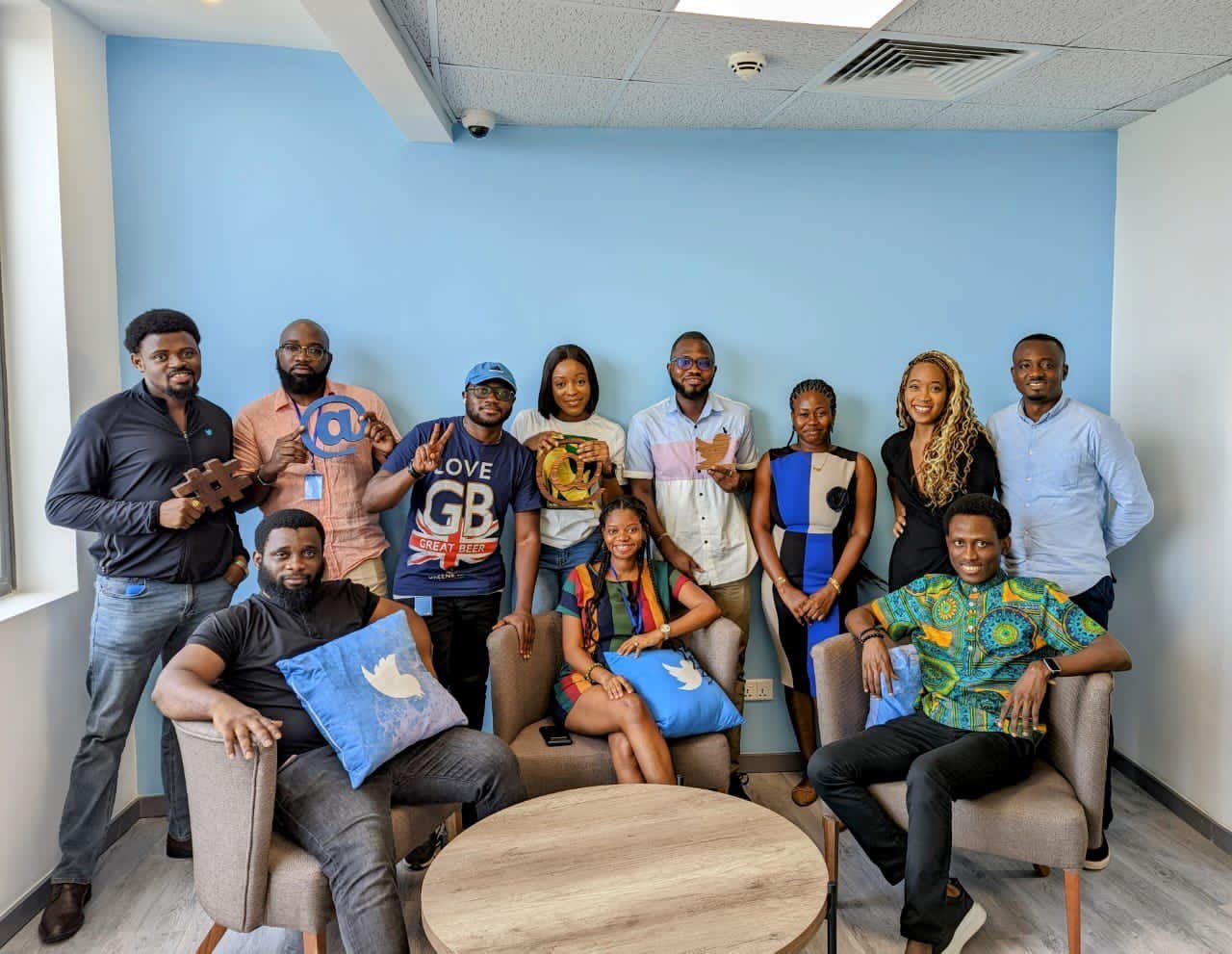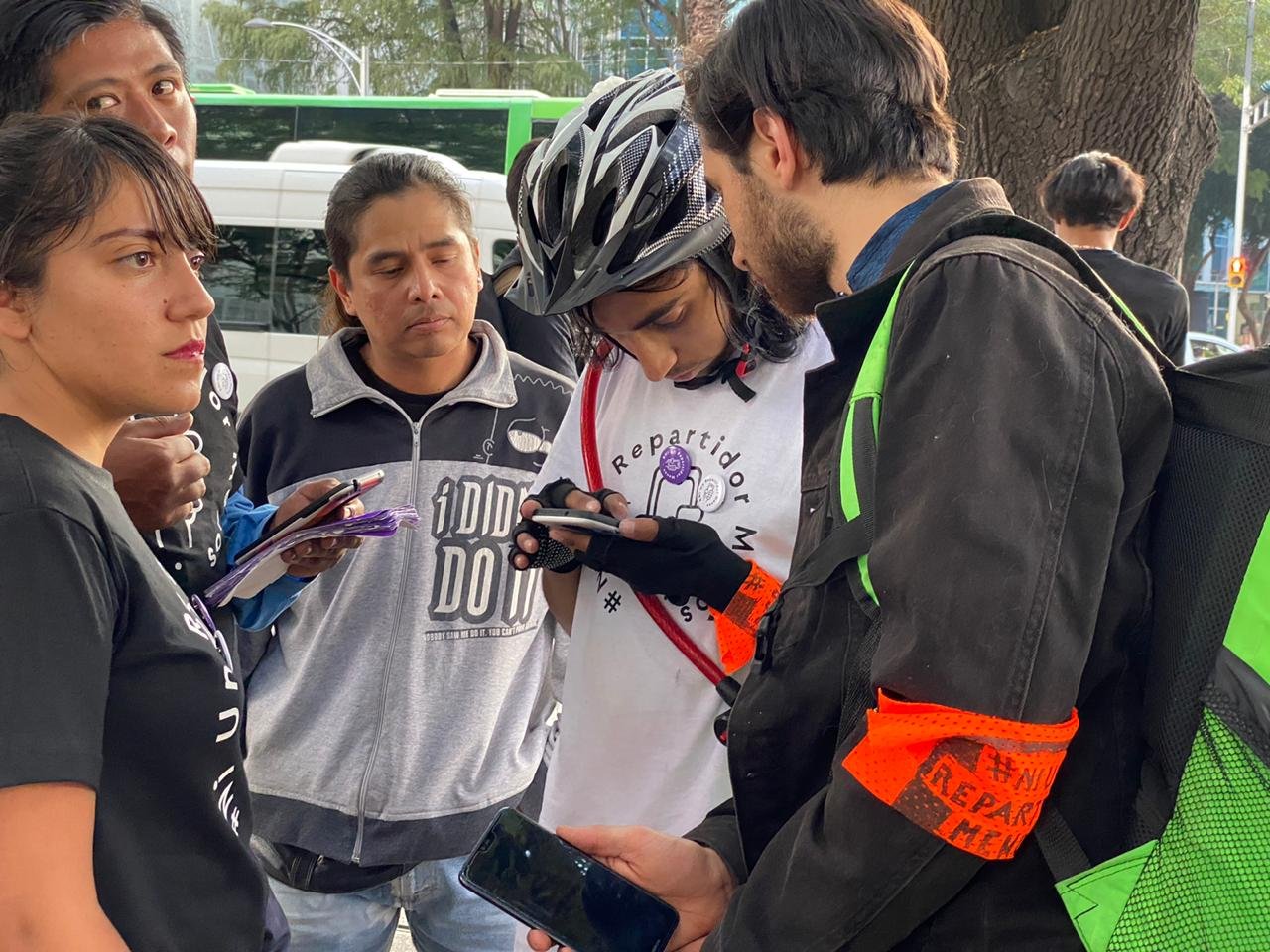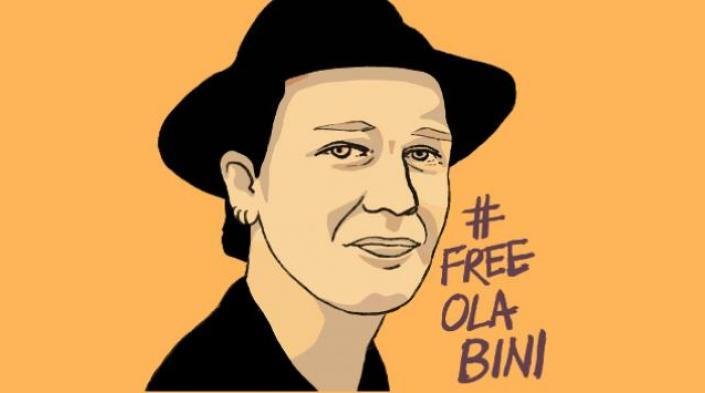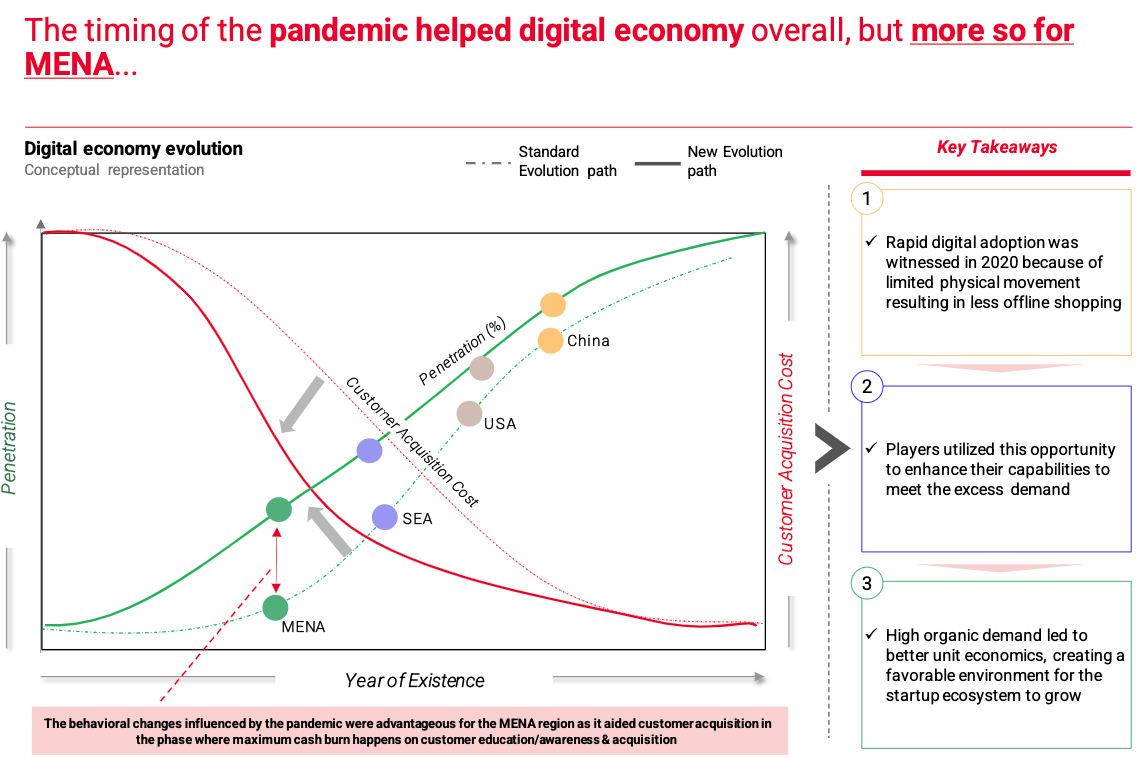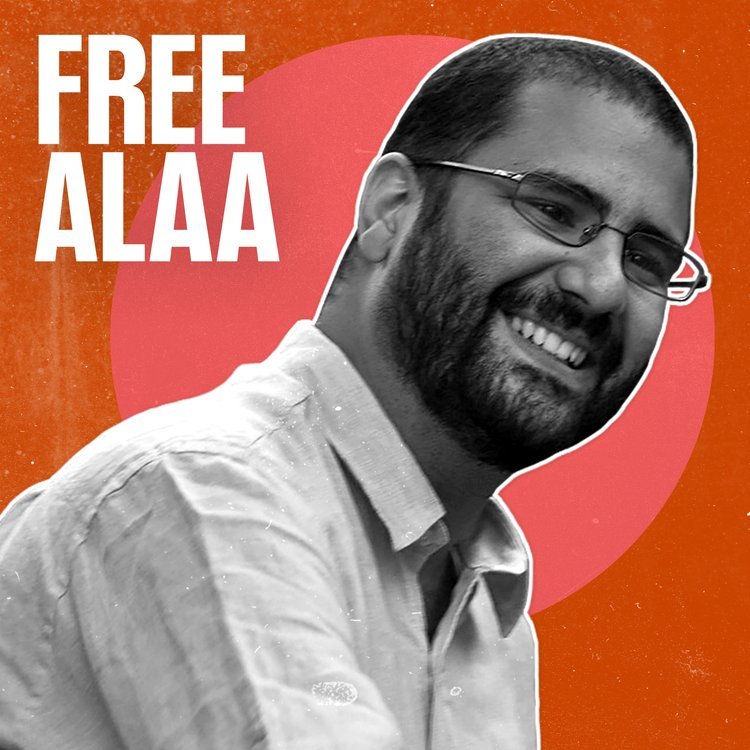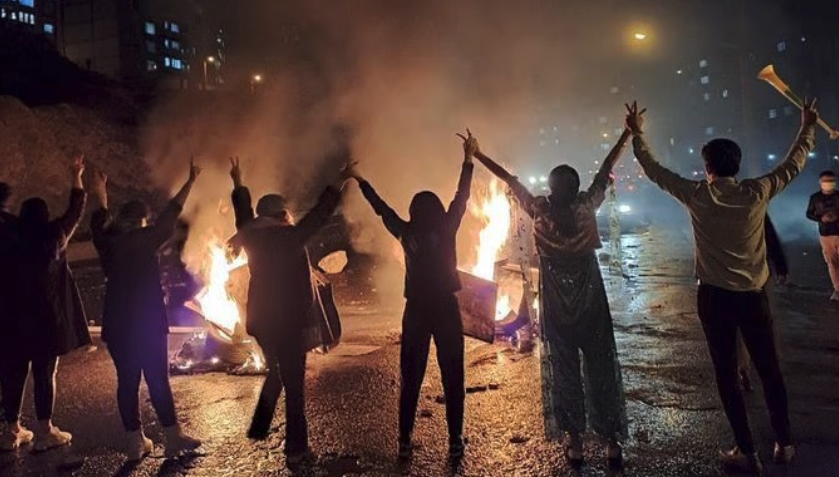November 2022 | Digital Rights Regional Briefs
Danae Tapia, Global Community Manager & Resident Hechicera
Welcome to a new release of our regional briefs!
This is the place to find updated and critical information about digital justice issues around the globe. Focusing in the Latin America, MENA, Africa and Asia regions, our reports cover Current Opportunities for Digital Rights Defenders, Emerging Topics on Digital Justice, Community News, Regional News And Updates.
This month we are covering a variety of issues from the Twitter telenovela to digital surveillance at COP27. Astha, our researcher covering the Asian region, made a fantastic critical analysis of misinformation in the region and the role of Western corporations on it.
Another gem is Úrsula’s dispatch from Latin America exploring the many implications of the lack of rights of delivery workers, reminding us that digital technologies have concrete social effects beyond theory-based discussions in social media about the latest actions of some tech tycoon.
Please contact us if you know about individuals or groups working on issues that should be reported in our briefs. Our intention is to adopt innovative perspectives away from mainstream discourses, to be a breeze of fresh air in this digital rights space :)
Danae
Global Community Manager
Asia Regional Brief
Africa Regional Brief
Latin America Regional Brief
MENA Regional Brief
Author: Mardiya Siba Yahaya
Mardiya Siba Yahaya is our Africa Community Lead. She is a feminist digital sociologist, researcher , learning designer and storyteller whose work examines the internet and its cultures from the margins of gender and location. She has a Global Challenges degree from the African Leadership University, was awarded the Mandela Rhodes Scholarship in 2021, and is currently awaiting her Masters Degree in Sociology from the University of the Witwatersrand.
Africa Regional Brief
Current Opportunities for Digital Rights Defenders
Mozilla is providing grants of $50,000, $25,000, and $15,000 to African nonprofits working at the intersection of technology and social justice in Kenya and South Africa
Fairwork is looking for a research partner in South Africa, send in your proposals by 30th November
Submit your session proposals for Mozilla Festival (Mozfest) 2023
Apply for Ananke Magazine’s 6 months Capacity Building Program for young content creators and upcoming journalists
Apply to Internet Society’s Early Career Fellowship
Emerging Topics on Digital Justice in Africa
Oral Storytelling As CyberFeminism
Podcasts and Digital Storytelling help Shape African Feminist Identities
In the new study, Egyptian female podcasters: shaping feminist identities, authors Kim Foster and Yasmeen Ebada demonstrate how the role of podcasts in feminist activism in Africa amplifies feminist perspectives, helps individuals acquire knowledge, shape identities, and amplify feminist principles, as well as the type of stories they tell in the digital space. The study found that audio production genres are knowingly utilized as a tool for cyberactivism.
Since 2009, African women have used podcast to share stories on their lived experiences, speak out on patriarchal violence and make complex feminist concepts more accessible. It has also allowed more African women, beyond the academy, to engage in feminist stories and concepts.
Podcasts May Help Africans Revitalize Oral Traditions
Research looking at the use of podcasts as a digital learning and cyberactivism tool in Africa is still in its early stages in comparison to western context. However, the use of podcasts in Africa is particularly intriguing given the long history of oral traditions on the continent despite risking erasure through violence and traditional euro-patriarchal perspective that oral traditions are not a reliable way to document and share information and knowledge. Ie, many western academic attitudes consider orality to be a lesser form of communication than literacy.
Further research in this area is needed, given it provides an opportunity to explore and reinstate African oral knowledge creation using feminist epistemologies and with traceable technology archives.
Podcast Recommendations
The following podcasts produced by African feminists, share stories, concepts and advance activism in Africa in an accessbile manner.
Digital Dada is by a Kenyan digital security specialist that demystifies digital security and provides perspectives on tackling online violence.
Terms & Conditions by Neema Iyer and Berhan Taye speaks on digital rights issues, hopes and opportunities in Africa.
Feminist Bar Podcast by a Zimbabwean author and activist explores issues surrounding sexuality and connects radical feminist epistemologies to lived experiences and ways to navigate life.
Sisters Voice by the African Women’s Development Fund (AWDF) tells stories of AWDF's grantee partners and the organization’s work. The podcast created a space for feminist conversations on COVID-19.
That Feminist Fire, by Association of Women In Development (AWID) share narratives that ‘unravels over 40 years of feminist movements and reimagines a way forward’.
Adventures from the Bedroom of African Women by Nana Darkoa Sekyiamah and Malaka Grant was created in 2009 as a space for African Women to share experiences of Sex and diverse Sexualities.
Community News in Africa
16 Days of Activism Community Events:
The Digital Dada, by community member Cecilia Maundu, has partnered with HerInternet from Uganda and SheEsecure from Ethiopia to run a campaign on online violence. During this month’s 16-days of Activism, Cecilia will be hosting live conversations with 30 women journalists to discuss how women journalists can handle online violence and how people can contribute to creating safe spaces online, which will be published on the podcast. sheEsecures will also be launching a digital magazine in Amharic on online safety.
Promoting Data Journalism through Africa Data hub:
Lack of access to verifiable and reliable data in Africa limits journalism in the continent, and impacts the ability to document issues and make informed decisions.
The Africa Data Hub (ADH) is a collective of data organizations operating across three African countries that work together to provide local journalists with verified accurate up-to-date data, tools, training, mentoring and support to tell the stories that matter with the data they need. They collect, develop, aggregate and clean data essential to addressing key issues within different African communities.
They are creating a community of data journalists through their fellowships and training, as well as working within different countries to address development-related issues. So far, their work has contributed to supporting with Covid-19 vaccine related solutions and making election information more accessible. The ADH looks to expand their work throughout Africa and work with key journalists in the community.
Migrating to Mastodon? What People in the Global South think about the Twitter Migration:
After Elon Musk’s acquisition of Twitter in October, many people have begun seeking other spaces and platforms such as Mastodon (a decentralized social media platform). Yet, very few people in the global South are seeking alternatives.
The migration is inspired by people who claim that with the Musk acquisition, Twitter is no longer safe for them. However, Twitter has never been a safe space for people from the global South, LGTBQ+ communities, women or journalists.
According to Sunny Singh, “ ‘theater of cruelty’ remains at heart of Twitter’s model, where abuse and violence against those who are historically marginalized is not only constantly, repeatedly, incessantly enacted but also presented as entertainment for audiences who have grown increasingly desensitized to this collective sadism and its effects.”
In addition, very few people within the African digital rights community are able to find or fund servers on Mastodon that allows them to grow, build their network, and connect. Meanwhile, for journalists and advocacy groups Mastodon does not provide them with a space where they can engage in activism and share their work since Twitter’s affordances is designed to be a ‘townsquare’. Collectively, the widespread sentiment within the community about the ‘migration’ only speaks to reinstate one’s class, geo-political location and gender privileges.
Picture taken by Fatou Warkha Sambe. Source: Open Democracy.
Facebook Group “Homme Choc” is a Secret Place of Violence and Toxic Masculinity:
Homme Choc is a Facebook group with over 1000 Senegalese men who share sexist, rape and violence apologist and misogynistic messages against women within their communities.
The space, according to Feministing While African, was created as a community for men to connect. However, it evolved into a venting space about men’s hatred for women, and a ‘safe space’ for rapists and sexual predators. Some of the messages have targeted women living with disabilities and other marginalized groups within Senegal.This is part of a growing issue within the Senegalese community: in July 2022, a group of homophobic social media users promoted violence against LGBTQ+ groups using the hashtag #JeSuisIdrissaGanaGueye.
The Collective of Feminists of Senegal have called for support to report and address violence facilitated online. Meanwhile, they also highlight the need to address violence within supposed ‘private’ spaces, further acknowledging complexities between private and public spaces online.
Regional Update
Image’s source: Mistameister.
A Retention Problem within the Technology Community: This month, major technology companies such as Twitter and Meta have laid thousands of employees, including those working in offices in the African continent.
Twitter laid off all the employees in its newly opened Ghana office three days after they began operating in person. However, African employees are not receiving he same severance packages as employees based in the Global North.
Online Violence Against Women Political Candidates in Zimbabwe: Women political candidates in Zimbabwe are experiencing online violence to limit their participation in the upcoming 2023 election via trolling, bullying and defamation of women candidates. A research report in Uganda by Pollicy also highlights the widespread violence against women politician in Africa.
Tanzanian Parliament Passed A Personal Data Protection Bill: On 8th November 2022, the Tanzanian parliament passed a unanimous decision for a Personal Data Protection Bill. While their rationale for the bill was to attract more investors to the country, the bill represents a step forward for data protection in the country. Yet, it would be critical to monitor the details of the law and how it advances digital justice and internet freedom in Tanzania.
Sign Up: Sign up for Research ICT Africa’s Newsletter and check out their resources.
Author: Astha Rajvanshi
Astha Rajvanshi is an independent journalist based in Mumbai, where she writes on gender, marginalized communities, and human rights across India and South Asia. Recently, she was awarded the Matthew Power Literary Reporting Award by New York University. As part of her reporting in India, she is currently examining tech surveillance and internet shutdowns. Previously, she was a Fellow for the Institute of Current World Affairs in Washington DC. She has also worked for the New York Times Magazine and Reuters in New York. She was born in New Delhi and raised in Sydney as a proud daughter of immigrants.
Asia Regional Brief
Current Opportunities for Digital Rights Defenders in Asia
Digital Rights Coordinator at EngageMedia: EngageMedia is looking for a Digital Rights Coordinator who will oversee a range of digital rights and digital security projects within Southeast Asia.
Strategic Advisor – Rights in Digital Space and Data Justice - Asia at Oxfam:
Oxfam International Asia Regional Platform is looking for a Strategic Advisor on digital space and data justice rights in Asia.Multimedia Literacy Associate at The Internet Freedom Foundation: The Internet Freedom Foundation is looking for a Multimedia Literacy Associate to join their Civic Literacy vertical to expand into video production.
Project Officer (Data and Digital Health) at the World Health Organization: WHO is hiring a Project Officer to assist the Division of Country Health Policies and Systems (CPS) with the design and implementation of appropriate health policies in the region. The position is based in Kazakhstan.
Emerging Topics on Digital Justice in Asia
In Asia, more and more governments are moderating online content. What exactly does this look like?
Many countries across Asia have introduced new laws for content moderation in the last few years, with restrictions already being implemented in countries like the Philippines and Bangladesh. According to a Chatham House research paper, the trend began by the Chinese government’s restrictive online regime, and has in turn put pressure on regional governments and tech companies to understand how to mediate online content.
As Pauline Leong explains in the Straits Times, content moderation involves screening user-generated content to determine its appropriateness and to eradicate harmful and objectionable content. But despite the proliferation of Open Internet ideals, governments and tech giants like Meta and Twitter have increasingly wielded the power to arbitrate content, decide what stays online and what goes, and block or remove social media accounts. To give a lay of the land, here’s a quick summary of what different countries are doing:
Image’s source: AlJazeera.
Most recently, the Indian government announced changes to its information technology rules applicable to social media companies, a move likely to be seen as reigning in big tech firms. Now, a government panel will be formed to hear complaints from users about content moderation decisions by social media platforms under the amended rules. But rights advocates have warned that this effectively gives the government control over the content moderation decisions that social media companies make. The Internet Freedom Foundation, a nonprofit that advocates for digital rights, called the proposed panel “essentially a government censorship body for social media that will make bureaucrats arbiters of our online free speech”, according to Al Jazeera.
In Thailand, the controversial Computer Crime Act (CCA) has a similar aim: to tackle undesirable content. However, it has mostly been used to curb dissent, compounding the danger to Thai activists. A research report by EngageMedia and the Asia Centre found that the law has been used to deny public access to critical content and was wielded as a weapon by the government against political opponents. Aside from curbing dissent among the Thai public, the law also puts pressure on internet service providers (ISPs) to take down content that the government deems critical.
Image’s source: Prachatai.
Similarly, the Indonesian Minister of Communication and Information Technology introduced Ministerial Regulation 5 (MR5) on Private Electronic System Operators, which requires compliance with content removal orders within 24 hours from all online services, businesses, and platforms. Tech companies face fines for failing to comply with government requests, and repeated non-compliance may result in blocking access and even criminal sanctions. So far, Google and other platforms like TikTok have agreed to comply.
In Vietnam, social media networks are required to remove “illegal content and services” within 24 hours and active “illegal live streams” within three hours, with non-compliance resulting in the platforms being banned. According to data from Vietnam’s communications ministry, in the first quarter of 2022, Facebook’s compliance rate was at 90%, Google at 93%, and TikTok at 73%. But the government won’t stop until that compliance number reaches 100%. Recently, it set even stricter standards for the social media companies.
And finally, Singapore’s Code of Practice for Online Safety, and Content Code for Social Media Services, require social media platforms to implement community standards and content moderation processes with a focus on three areas: child safety, user reporting and platform accountability. Platforms are required to ensure that users and their parents detect inappropriate content online, and any non-compliance can lead to regulatory action.
So how are social media giants responding to these measures?p Most often, moderation remains a blunt force, rules-based tool that is unsuited to the nuances of real-world human conversations, especially when in local language. Because AI doesn’t yet have the requisite tools and capabilities to understand, flag and address all content, media platforms often lean on humans for final review. Yet, the scale at which social media platforms operate in Asia often always exceeds corporate capabilities, leaving governments free to intervene.
While it would be virtually impossible to have a universal set of community guidelines on content moderation given the clash of values and ideologies in each country, it is still important that digital rights governance measures like policies and enforcement decisions have a benchmark of accountability and transparency.
Many rights activists even suggest that digital platforms can still form a consortium with industry partners, government agencies, civil society, and online users to proactively develop policies, rules, and regulatory frameworks. Additionally, establishing an independent third-party oversight board or international arbitration council could also be useful for discussing and evaluating content moderation dilemmas and adjudicating complaints or grievances from users or governments.
Community News in Asia
The Software Freedom Law Center in India (SFLC.in) created the Digital Defenders Network, an online network of lawyers, academicians, and policy experts committed to defending digital rights. The first group of defenders are 25 lawyers from across the country acting as local points of contact for leading digital rights’ litigation.
Global Voices Advox has released its Unfreedom Monitor Report, which looks into the growing phenomenon of networked or digital authoritarianism and highlights the alarming slide of democracy in India. You can read the full report here.
The Asia Centre in collaboration with the ICNL Alliance has published three baseline studies on Internet Freedoms in Southeast Asia. One of them is “Myanmar: Dismantling Dissent – Crackdowns on Internet Freedoms”. You can read the full report here.
In 2023, EngageMedia will host the three-day Asia-Pacific Digital Rights Forum. You can join as a participant or host a session here.
Regional News & Updates in Asia
This story in The Diplomat looks at how digital rights in Vietnam are declining as a new system of surveillance and control has emerged in the country with the support of Western tech giants.
Christian Science Monitor looks at how local initiatives across Asia are tackling misinformation to fill a fact-checking gap left by tech giants who lack expertise in local languages and context.
Al Jazeera looks at the new rules that give the Indian government control over content moderation decisions made by social media firms.
Straits Times covers the Korea-Singapore Digital Partnership Agreement, the first digital economy deal concluded between two Asian countries.
This report in CNBC says the Southeast Asian internet economy is set to reach $200 billion in total value of transactions made this year, three years earlier than projected, according to a new report from Google, Temasek Holdings and Bain & Company.
Author: Úrsula Schüler
Úrsula Schüler was born and raised in Chile, South America, where she studied Journalism and worked in media and various organizations for seven years. Spanish is her first language and years ago she was a student representative in high school and her university. After this, as a journalist, she reported two presidential and legislative elections for national media in Chile. She worked in newspapers, a television channel website, and internal communication for universities and companies. Currently, she is studying a postgraduate program in Digital Media Marketing, in Toronto, Canada.
LATAM Regional Brief
Current Opportunities for Digital Rights Defenders in LATAM
Derechos digitales is inviting organizations or activists without formal affiliation who are working on digital rights issues locally in Latin America to pre-register and submit their applications to the Rapid Response Fund for the protection of digital rights in Latin America (FRR). Pre-register here and make project proposals here.
The OTF Rapid Response Fund offers both, direct financial support, as well as technical services from trusted partners to high-risk people and organizations, such as bloggers, cyber activists, journalists, and human rights defenders.
Call to the II Encuentro Latinoamericano de Antropología Digital: Expandiendo Futuros! (Latin American Meeting of Digital Anthropology: Expanding Futures!)
Mozilla Festival is calling for proposals in Spanish: Whether you are an expert in your field or just becoming interested in making the internet a better place, they welcome your voice in this critical, community-driven experience. Deadline to submit your proposal: December 16th 2022.
The Call for Proposals for RightsCon Costa Rica is open.
Emerging Topics on Digital Justice in LATAM
The digital platforms workers' fight for fair working conditions in the region
Work on digital platforms has progressively grown around the globe in all kinds of fields, especially during and after the COVID pandemic. It started with the transport service of passengers years ago and has expanded to food delivery, cleaning, pet sitting, and translating services.
In Latin America, there are also several platforms which mostly offer transportation services and food delivery. In the past few years, their workers have strengthened their self-organization and unions. In this sense, we wanted to know from their point of view what the main challenges are in this type of labor system that is growing every year and in every field.
“We are workers and social security is not a gift, it is a human right”
Image’s source: Unidapp Colombia.
Luz Myriam Fique is president of Unidapp Colombia, an organization that gathers more than one thousand platform workers in Colombia. She says that “technology is great, but for this to work well for everyone, we need policies that regularize these technologies. We cannot allow the platforms to do whatever they want. We are workers and social security is not a gift, it is a human right”.
She highlights that in several countries the platform workers do not have accident insurance and are categorized as “collaborators”, “autonomous” or “freelancers”, despite that they cannot disconnect whenever they want. They have to accept assigned orders, and in most cases, they have to commit to specific scheduled shifts.
The organization leader and food delivery worker states that “the platforms subject us to their algorithms and to the blockings (the action which deactivates their accounts in the system as delivery workers) of our profiles for arbitrary complaints everywhere around the world. We are working all day for the platforms, receiving direct orders and payments from them, but they don’t recognize us as workers to prevent us from claiming our labor rights”.
Luz Myriam explains that “currently, to earn the minimum wage in Colombia, I have to work 10 hours a day and rest only 1 day every 15 days, but some colleagues with more family expenses have to work 14 or even 16 hours per day. I don’t have social security, paid holidays, unemployment insurance, and we cannot even afford to rest on the weekend in order to gather enough money to earn the minimum wage”.
Digital orders and road safety
Image’s source: Nosotrxs.org
The situation is similar in Mexico: they have the same demand to have social security and be recognized as workers. Saúl Gómez is the founder of Ni un Repartidor Menos (“Not a Delivery Man Less” in Spanish), an organization which started in 2018 after the death of a delivery worker, José Manuel Matías. José was biking in the suburbs of a Mexican City doing food delivery and was pulled over by a truck.
In this sense, Saúl explains that the road or traffic safety is another very critical problem in the region, especially in the big cities. In addition, their four main proposal areas are centered around labor rights, no violence and discrimination, no harrassment against delivery workers, and road safety for everyone. The organization leader works in food delivery and estimates that there are at least 10 million platform workers in Mexico City. He explains that they are organized by WhatsApp groups gathering more than 3,500 people in total.
Despite the platforms not legally recognizing them as “workers” and “unions”, they accomplished some conversations with them. For example, Ni una Repartidora Menos (“Not a Delivery Woman Less” in Spanish), which organizes the female workers, agreed on a protocol with Uber for protecting women against violence.
Saúl also highlights that the Mexican Government started to discuss the platform work regulation and Ni un Repartidor Menos gave them the proposal in October. He explains that they work and pay taxes, and “defend the social security for our work, therefore, we also claim to attend to our work risks, health rights and medical leaves, retirement rights, and maternity leaves.” The organization supports the platform's schedule flexibility, but also demands social security. “The technology is going to keep advancing, we will have more platform systems and workers in different fields, so, we have to regularize it and incorporate social security”, Saúl states.
International Labour Organization receives Ecuador’s case
The FrenApp Ecuador’s secretary of legal defense, Carolina Hevia, also delivers food where she lives. In Ecuador, they started to organize the platform workers in 2018 and currently they gather more than 750 delivery workers. “In Latin America we don’t have a proper regulation framework for our work and the platforms. We have to consider that these businesses are highly connected with the political power in our countries”, the organization leader says.
She also confirms that the situations occurring in the other mentioned countries also happen in Ecuador. In addition, she shares that they created an application for the platform workers where they could find legal advice.
Carolina highlights that they leveled up their complaints and proposals about their right to be recognized as a union to the International Labour Organization (ILO). The complaint was accepted in November by the ILO and now FrenApp Ecuador is compiling all the information for supporting its complaint in order to forward the information to the ILO for regularizing their union freedom rights. Carolina knows that this will take time, but she states that it is a necessary step for protecting workers rights.
The leader explains how all these factors especially affect some immigrant workers, when in some cases they don’t have the required legal documents for working in their current territories. There are even cases where they “rent” profiles from registered delivery workers which allows them to finally work and generate incomes. However, this exposes them to even higher risks.
Community News in LATAM
Tierra Común Proposal for a Cooperative Model for Digital Infrastructure
Tierra Común cooperative explains how cooperative associations produce and maintain digital infrastructure. They synthesize the findings into a model that digital infrastructure projects can follow to meet some of their needs. They are written in Spanish and in English.
Media outlets suffered unjustified temporal blockings on Twitter
After Elon Musk bought Twitter, its departments related to human rights, accessibility, content moderation, among others, were dismissed. In addition, some Latin American media outlet accounts have experienced unjustified temporal blockings of their profiles.
Argentina: Sign agreements on content moderation rights
Within the framework of the project "Content moderation and rights of platform users in Argentina: Dialogue for a positive agenda", civil society organizations, academic members, the technical community and specialists in freedom of expression and human rights, led a series of meetings during 2021 and 2022 on the problem of content moderation carried out by digital platforms and its impact on the rights of users.
Latin America Meetup hosted by Team CommUnity
The Latin America Meetup hosted by Team CommUnity (TCU) was held on the 16th of November. You can read the notes of the meetup here.
Regional News and Updates in LATAM
Coalition of organizations denounces lack of guarantees on trial of digital activist Ola Bini
The Swedish digital activist and computer expert, Ola Bini, has been in judicial proceedings for more than two years in Ecuador due to the accusation of the alleged crime of invading a computer system. During the criminal process carried out against Ola Bini, several inconsistencies arose. In response, more than 16 organizations joined to form the Observation Mission in order to ensure that each of the stages of the case are handled with total transparency.
Constitutional Court of Colombia recognized digital gender violence for the first time
For the first time, the Constitutional Court of Colombia recognized that digital gender violence is a serious form of violence that occurs with the assistance of the use of information and communication technologies, or aggravated by it, and that seriously affects women.
...
Author: Islam al Khatib
Islam al Khatib is a Palestinian feminist born and raised in Beirut. She researches feminism(s), hegemonies in the 'technocene', ecologies, and grief. She holds BAs in Political Science and Philosophy from the Lebanese University (LU). She is currently pursuing a masters in Gender, Media and Culture at Goldsmiths, University of London.
MENA Regional Brief
Current Opportunities for Digital Rights Defenders in MENA
SI Leader Lab. Deadline: 30 November.
SI Leader Lab is a leadership programme for civil society leaders to learn about new tools and forms of collaboration. The programme combines online workshops with regular coaching support in both regional and cross-regional learning groups. They are currently looking for applicants. Deadline is 30 November.
Stochastic labs residencies.
Stochastic Labs provides fully funded residencies to engineers, artists, scientists, and entrepreneurs from all over the world. Residencies range in length and include a private apartment in a mansion in Berkeley (USA), co-working and/or dedicated work space, shop access (laser cutter, 3D printer, etc), a $1k monthly stipend, and a material budget. Residents may apply individually or in groups and applicants can be at any stage of their careers. Applications are reviewed on a rolling basis.
Emerging Topics on Digital Justice in MENA
Defining the Digital Economy in the MENA Region
The term "digital economy" has come to refer to the various technological and digitization tools that can help make the economy more "efficient”. The World Bank places the digital economy within a framework of digital development where it understands as an infrastructure that seeks to boost economic activity through the development of digital data and the application of information and communication technology. In this definition, the digital economy encompasses information technology, software, mobile communications, and data transmission in order to boost the economy and the market. It also includes controlling currency and money influx. For example, in April 2022, the UAE Cabinet adopted an agreement to link payment systems of the Gulf Cooperation Council (GCC) countries, meaning a shared infrastructure for finances within the same region.
What is “digital” about the economy in the MENA region?
Several governments in the region have met (such as Saudi-Nigeria, UAE-India and Bahrain-Nigeria, among others) to discuss potentials and opportunities for investing in the region's more advanced digital economy framework. This push toward digital economies has undoubtedly increased and been mainstreamed through Saudi2030 and the UAE's AI in governance strategy.
However, it appears that there is no clear definition of what these governments mean when they say "digital economy" as it can range from paying the Jordanian’s initiative to pay bills online and the virtual work residency permit in the UAE. While there have been a few reports on digital economies in the MENA, they have been severely limited to finance consultancies attempting to understand investment opportunities. One example is the RedSeer August 2022 report, which identified a "digital revolution" in the region and called it "a fertile ground for digital solutions" due to its "strong" digital infrastructure.
The consultancy arrived at this conclusion after studying national vision programmes such as Saudi2030, the UAE's digital economy strategy, and Jordan Vision 2025, as well as countries developing frameworks for data localization and privacy, such as Lebanon's cybercrime bureau new policy and the UAE's data localization policy. According to the same report, the pandemic provided a new impetus for digitization in the region. At the same time, other reports highlighted a lack of "digital literacy" and accessibility in the region, which may have contributed to worsening economic conditions.
What does that mean for the MENA community?
In all these reports,, there appears to be a lack of material understanding of the realities of people who do not come from wealth or managerial capital (as in those who take on senior roles in the processes of digitization), as well as the perspective of those on the other end of this digitization process (as in users, not managers).
The Access to Knowledge for Development Center (A2K4D) and the MENA Regional Gender and Feminism Office at Friedrich Ebert Stiftung (FES) has been working on a project on "Post-Covid Feminist Framework for Digital Justice in the MENA Region." The project highlights the various ways in which digitization has been carried out, for example, with the assumption that all users are men, and that all those who contribute to economies are not caregivers, among other points.
Image’s source: Middle East Eye.
A factor that is also overlooked is how refugees in host countries can access the digital economy when a) they lack access and b) the only way to access these digital economies is through formal and legal processes that negate refugees' existence. For example, how can refugees engage in e-commerce–one of the digital economy’s pillars, when they’re not allowed to open a bank account?
When thinking about digital economies in the region, one must consider what form of social and political control it entails, and how its being defined, given that it can contribute to worsening an unequal surveillance regime. For example, in one report referenced above, employees were defined as "youthful" entrepreneurs who exist in a "on-demand" economy and give out their data to engage “economically”.
Community News in MENA
Global solidarity with Alaa Abdel Fattah:
Global solidarity with Alaa continues to grow as he is still behind bars despite international calls for his release and physical protests in the #COP27 venues in Egypt. Alaa began his water strike on November 16th, the first day of #COP27. The family was not allowed to see Alaa or even see proof of life until the 17th of November, when they visited Alaa and learned about the inhumane conditions that forced him to end his hunger strike. Details about what Alaa went through while world leaders met in the summit can be found in his family's statement following his visit. People's support for Alaa and his family is strong. The family continues to urge people to demand Alaa's immediate release. Join them.
Digital Rights Lab from Sudan–watch this space:
Since the military coup took place in Sudan on October 25 2021, the internet freedom and digital rights status has dramatically declined, from internet shutdown and censorship to extreme surveillance and human rights violations. Join our community and stay tuned for detailed reports on the digital rights news and updates in Sudan, prepared by the Digital Rights Lab.
Regional News and Updates in MENA
Image’s source: Farzad Seifikaran by ARTICLE 19.
Turkey blocked ISPs following explosion
Istanbul was rocked on November 13 by news of a deadly explosion on Istiklal, the city's busiest pedestrian street. While the cause of the explosion is still being investigated, officials say at least six people were killed and 81 were injured.
Following the explosion, reports of blocked ISPs began circulating. RTÜK, the Radio and Television Supreme Council, imposed a broadcast ban on media, while the Information Technologies and Communications Authority (BTK) restricted access to social media platforms. Authorities have also opened an investigation into 25 social media accounts for allegedly posting provocative content, inciting fear and panic, and inciting hatred and enmity.
Activists, journalists and digital rights defenders used VPNs to access media platforms in order to report on what’s happening, and have referred to this ban as a form of control to silence any questions regarding the investigation process.
Iran updates
Iran’s protests following the murder of Mahsa Amini (Jina Amini) continue. The movement expanded to include union workers and trade unions, such as teachers, who are also under threat of being silenced. In the face of this, activists and digital rights defenders face violence and waves of disinformation designed to delegitimize what is happening. Following demand and pressure from human rights organizations, the UN Human Rights Council held a special session on Iran on Thursday November 24, streamed on UN Web TV.
For more information on Internet Freedom tools, resources and actions to support Iran's Feminist Uprising, read this blogpost by Team CommUNITY.
#COP27 Egyptian government surveillance
According to a report by UN special experts, activists and civil society were subjected to intimidation, harassment, and surveillance during the COP27 climate summit in Sharm-el-Sheikh. The UN Experts received multiple reports and evidence of civil society actors, including indigenous peoples, being stopped and interrogated by Egyptian security officers, as well as local security and support staff monitoring and photographing civil society actors inside the COP27 venue on multiple occasions.
Egyptian authorities arrested 70 people ahead of the #COP27, including Indian activist Ajit Rajagopal. He was detained overnight in Cairo just before the summit's start after embarking on a solo climate justice protest march in which he hoped to walk several hundred kilometres of the route to Sharm el-Sheikh. According to Human Rights Watch, 40 of those detained have not been brought in front of Prosecution officials.
Concluding note
In this report, there were a lot of points in which it would be best to assume that readers asked “what is to be done?” which Alaa AbdelFattah has already answered:
“Fix your own democracy: This has always been my answer to the question ‘How can we help?’ I still believe it’s the only possible answer. Not only is it where you live, work, vote, pay tax and organize the place where you have more influence, but a setback for human rights in a place where democracy has deep roots is certain to be used as an excuse for even worse violations in societies where rights are more fragile. I trust recent events made it evident that there is much that needs fixing. I look forward to being inspired by how you go about it.”
Excerpt From: Alaa Abd el-Fattah, You Have Not Yet Been Defeated















